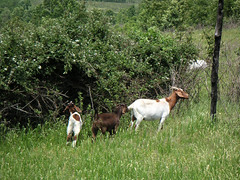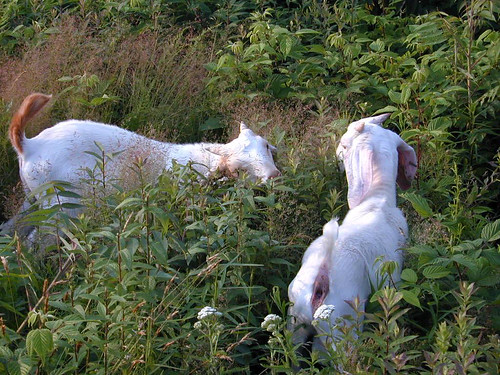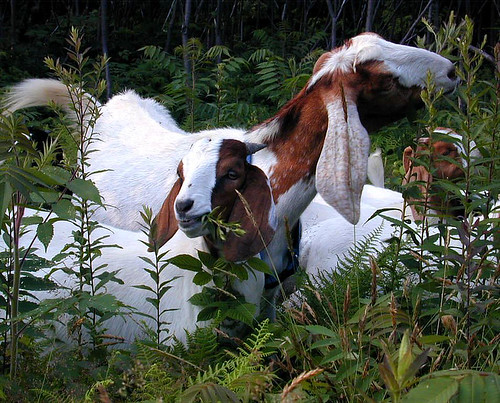Offering Targeted Grazing Services to Landowners:
A Primer for Producers
A follow-up to the July 22 webinar:
“Goats and Sheep: A Weapon Against Weeds”
Invasive species cause environmental damages and losses of up to $120 billion per year nationally. Invasive species crowd out native woodland plants and animals, robbing native wildlife species of crucial food and cover sources. Climbing species can also strangle trees and bring down limbs. What can you do to stem the invasion?
Machines often can't get to problem areas, manual removal is very labor intensive, and herbicides can inflict collateral damage water, plant, and animal resources.
Targeted grazing with goats and sheep can be a cost-effective and environmentally-friendly method of controlling invasive species on your property. Goats and sheep graze in places that mowers can't reach and humans don't want to go, including thickets of both brambles and poison ivy.

Goats eat a wide range of unwanted vegetation, which on the East Cost includes kudzu, Oriental bittersweet, Tree of Heaven, multiflora rose, Japanese honeysuckle, mile-a-minute, and more. Sheep prefer grasses and forbs. Livestock will graze all day, going through very dense material at about a quarter acre per day per 30 animals. They respect electric fences, making this an easy and effective source of mobile containment.
Interest in this control method is building quickly, but there are very few service targeted grazing service providers available to landowners. This webinar will pick up where the July 22 webinar left off and speak directly to goat and sheep producers who are interested in offering targeted grazing services to landowners.
The webinar is free and will be held on October 7 at noon, eastern time. Contact Carol Taylor to register (
carolt@umd.edu or 410-827-8056, ext. 135). Note that registration is limited to the first 100 respondents. A recording will be available at
www.naturalresources.umd.edu soon after the live presentation.
Presenters will include Brian Knox, President of Sustainable Resource Management, Inc. and supervising forester for Eco-Goats; and Dr. Nelson Escobar, Small Ruminant Production and Management Specialist with University of Maryland Extension.










